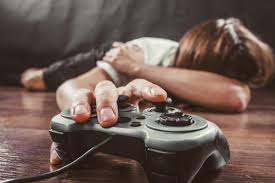Description
Description
Addiction to alcohol, tobacco, cocaine, crystal methamphetamine, benzodiazepines, cannabis, and opioids can be devastating, as we all know. But video games, online porn, internet gaming, internet gambling, and other technological addictions can be every bit as addictive as substances. These addictions can have real-world ramifications and lead to the loss of jobs, money, and loved ones. As technology becomes integrated into every facet of modern life, these technological addictions are becoming increasingly prevalent. To continue the discussion on neurobiology and addiction, this session will inform healthcare professionals about the addictive potential of technology and help them view these addictions as legitimate psychiatric conditions worthy of medical assessment, diagnosis, and treatment.
Note: This course was originally designed to follow Neurobiology of Addiction by Dr. Levounis. It is recommended to take that course first or to have a prior knowledge of neurobiology of addiction.
Learning Objectives:
- List five forms of Technological Addictions as they appear in the scientific literature of 2022.
- Discuss the psychology and culture surrounding Internet Gaming addiction.
- Distinguish between normal use and addiction.
- Apply fundamental neurobiological concepts of addiction to the treatment of Technological Addictions.
How it Works
After watching a video presentation by Petros Levounis, MD you will be required to take a short quiz. Upon receiving a grade of 80% or higher, you will be directed to a course evaluation. Once you have completed the evaluation, you will be able to download a .pdf certificate to get your course credit.
Outline
- Video Presentation (1.5 hour)
- Exit quiz requiring a score of at least 80% to earn contact hours
- Evaluation of the training
About the Presenter:
Petros Levounis, MD, MA Dr. Levounis serves as professor and chair of the Department of Psychiatry at Rutgers New Jersey Medical School, and chief of service at University Hospital in Newark, New Jersey. Dr. Levounis came to Rutgers from Columbia University where he served as director of the Addiction Institute of New York from 2002 to 2013. read more
Contact hours:
- 1.5 contact hours for social workers, licensed clinical professional counselors, and behavioral health professionals
- 1.5 contact hour for alcohol and drug counselors pending approval by the Maine Board of Alcohol and Drug Counselors.
- 1.5 contact hours independent study Category I contact hours for Psychologists are provided. CCSME is a pre-approved sponsor and provider of Professional Education Activities for Psychologists.
- 1.5 contact hours for MHRT-C.
- 1.5 contact hours approved by the Maine Board of Alcohol and Drug Counselors




